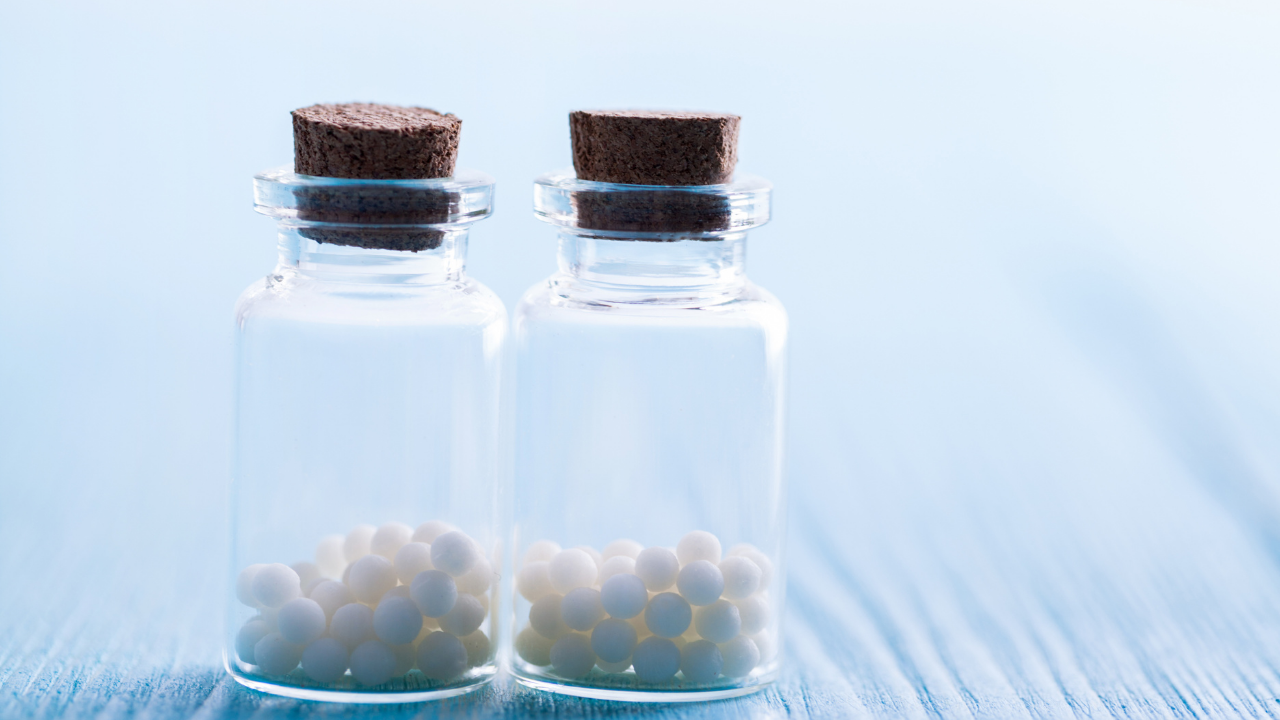Homeopathy Tips Newsletter
Homeopathy for Eye Injuries

Homeopathy can offer much help in an emergency situation when the eye has been injured. As with all injuries, it is advisable to seek medical attention at all times. But in the meantime, homeopathy can often come to the rescue and help.
Simple first aid can many times help. When there is something in the eye, it can be helpful to flush the eye with water. If there has been a chemical exposure, loss of vision, or a solid object in the eye, seek medical assistance immediately. There are remedies that can help but the eye is a delicate organ and needs proper physical attention when injured.
There are 56 remedies listed in the Complete 2005 Repertory under Eye; Injury. I will not list them all but will go over a few of the most important remedies to consider in the many different ways the eye could be injured.
- Aconite – Aconite is often called the Arnica for the eye. It will help heal minor abrasions due to foreign objects in the eye. It can help with inflammation and the blood-shot r ...
Learning How to Receive the Case

The big hurdle for the homeopath is learning how to receive the case. This is where the homeopath meets the client and all of the learning about remedies, rubrics, and homeopathy must be put aside to really hear the person and understand what is asking to be healed. If we do not perceive this accurately, then all of the symptoms and rubrics to help find a remedy will be diluted or possibly even wrong. Therefore, our success in determining the best homeopathic remedy depends on this process being done right.
Hahnemann stressed how important it is to be unprejudiced observers. This is the basis for the process of receiving the case. So how do we become unprejudiced to do this process? First, we must understand what our prejudices are. The biggest prejudice I find is relating to the client through our own experiences. This is the most natural thing we could do and we do this in all relationships. But as a homeopath, we have to listen and observe our client as if we have never heard a sim...
Comparative Mind Rubrics

When receiving the case, it is often difficult to translate the person's suffering into the language of the repertory. Even more difficult is to understand the subtleties of the rubrics available to best define the symptom. We must be diligent in this process and becoming familiar with the mind section of the repertory is imperative.
Our client's mental and emotional suffering must be understood clearly. It is a good practice to really consider what the person is saying and ask open-ended questions for further clarification. Many times, this is enough to establish the feeling of the person in our minds. But if it is not, then having comparative rubrics to choose from really helps define the suffering. This should be learned by repeated study of the repertory and seeing many cases.
Here are a few mental rubrics that are very similar but have different meanings:
- Absent-minded; inattention of the mind without a fixation,
- Absorbed; with a fixation on one thought or subject.
- Abstract...
Getting Out of Your Own Way

The primary goal of any homeopath is to have a clear understanding of the case before us and find the best remedy to inspire a person's healing. This may sound easy but it is the one place every homeopath and most people struggle. The questions of doubt that come up in our minds like, ”Will I ever find the right remedy?” or “I don’t have a case” or “I’m running out of time” can be tamed and even overcome. It does take practice though.
These hindrances are created out of our own mind and insecurities. If we could approach every case with a clear understanding and confidence, then it would make our jobs much easier. We would be better homeopaths. In essence, we get in our own way.
Here are some tips that I have found that can help with getting out of one's own way.
- Set your intention – Before I come to any case, I take a moment to set my intention. This means letting go of any extraneous thoughts I have and visualizing how it will be and finding what is asking to be healed and findi ...
Mind Rubrics

When doing homeopathy, it is very helpful to have a complete knowledge of the repertory, especially the mind section. Obviously, it is so large it would probably be impossible to memorize it all. But there are a few rubrics that come up often that are good to be familiar with. These rubrics can often be seen in case-taking and could help lead to the best remedy.
Study these rubrics and get to know the remedies they contain. Having these as one of the tools in your toolbox will help you immensely.
- Ennui – When there is a weary sense of dissatisfaction.
- Superstitious – When a person trusts in something; saying or action, a fetish, habit, amulet, ie. “knock on wood”
- Weeping; with sympathy for others – When they are easily moved to tears by the suffering of others.
- Stupefaction – A state where the person is unable to react or respond to a situation or life; either through shock and amazement or groggy and insensible.
- Sensitive; to noise – When there is an apprehension or fearful st ...
Homeopathy for a Cough

Winter is approaching for many around the world and with that often comes the season of the common cold. Here are some tips and remedies to keep in mind for helping a cough with homeopathy!
The cough is a natural way for the body to remove phlegm. It should not be suppressed. Each person has their particular expression of their body’s attempts to heal. Giving allopathic cough suppressants will not help their healing process and should be avoided. If some relief for minor throat irritation is needed, try equal parts lemon juice, honey, and warm water. Take a teaspoon at a time and hold in the mouth and swallow to coat the throat. It can be very soothing. Avoid medicated cough drops that have camphor, menthol, and eucalyptus. They can interfere with the healing response to the well-selected homeopathic remedy.
In the case of any infectious disease, watch closely that the cough does not develop into a more serious condition. Cough due to the common cold is usually during the resolution ...
Bending the Rules

As homeopathy has evolved since Hahnemann, there have been many new ideas about how to use energetic medicines. I hesitate to use the word "homeopathic" medicine since this would be in direct conflict with what Hahnemann has described. I use "homeopathic" in the sense of why we are giving the medicine and not the medicine itself.
In the classic Hahnemannian system of prescribing, we are searching for the simillimum; the single best homeopathic remedy, that single remedy that is homeopathic to the case. Homeopathic means similar – suffering.
Hahnemann described his system for prescribing very well in the Organon and it is still the "bible" for homeopathic treatment. Because it was written in German and has been translated into many languages, there is room for interpretation right from the start. And as homeopathy has evolved over time, others have added their observations and made changes to Hahnemann's original system. Indeed times have changed in the last 180 years and all things d...
The Role of Imagination in Healing

Imagination. Now, what could that possibly have to do with homeopathy? Plenty, if you are guiding and inspiring your client to a better state of health.
Let's look at the role of imagination in healing. First, let's read what Webster’s New World Dictionary has to say about it.
Imagination:
- 1a. The act or power of forming mental images of what is not actually present.
- 1b. The act or power of creating mental images of what has never been actually experienced, or of creating new images or ideas by combining previous experiences; creative power. Imagination is often regarded as the more seriously and deeply creative faculty, which perceives the basic resemblances between things, as distinguished from fancy, the lighter more decorative faculty, which perceives superficial resemblances.
- 2. Anything imagined; mental image; creation of the mind; fancy.
- 3. a foolish notion; empty fancy.
- 4. The ability to understand and appreciate imaginative creations of others, especially works of art ...
How to Quickly Evaluate a Remedy

When you are receiving a case and have a list of well-selected rubrics that has led to a list of remedies that are being considered for the case, how do you quickly learn about so many remedies that may have come up in the repertization?
It can be overwhelming to have 50 remedies to consider and you might only know a little about 20 of them. How do you quickly learn about the remaining 30 remedies that should be considered? This is where Materia Medica knowledge helps a lot. But honestly, you will never quit learning about remedies. There is simply too much to remember about thousands of remedies. So being able to evaluate a remedy to consider and put in your basket of possible remedy choices is a good skill to have.
First and foremost is knowing what is asking to be healed in the case. Without this, you do not have a case. This will determine the rubrics that are most important and influence your entire case. When you have chosen rubrics that best reflect what is asking to be healed...
Low Potency Prescribing

There are many different ways to administer the remedy and potencies to choose from. One way that I have found very useful is low potency prescribing. Low potencies are any potency from the mother tincture to the 30C potency. The most common low potencies are in the X and C potencies. They usually start with the 3C or X and proceed in increments of threes ie., 3C, 6C, 9C, 12C, 15C, 18C, 21C, 24C.
The X potencies are cruder and are very good to use when there is a gross pathology. The X potencies are diluted 1 part of the original substance to 9 parts alcohol and water, then succussed. Because gross pathology usually involves inflammation or infection, the remedy may need to be given more often than one time per day. When the person is quite sick, it may be necessary to give the remedy hourly. If the remedy is given and there is a noticeable response, then it is best to wait until the symptom picture changes again and shows that the vital force has stopped acting. Then it is time to re...

